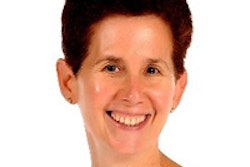
It seems as if more baby boomers are retiring. Many have been "enjoying" some form of cost defrayment through having a dental benefit for the past several years from their employer. But now, beyond the typical COBRA plan, these folks are looking for alternatives to paying their total cost out of pocket.
 Sheri B. Doniger, DDS.
Sheri B. Doniger, DDS.
I don't have actual statistics but it seems as though only about half of the dentists I know accept dental benefits. As we know, dental benefits have not changed much over the past 50 years. The maximum allowable amount has been the same ($1,000 a year) or expanded ever so slightly, but it never covers everything.
I had a few patients recently ask about dental coverage beyond retirement. Others have been inquiring about dental coverage because their businesses are downsizing benefits and, what a surprise, dental was eliminated. I never understood why a business would think eliminating dental coverage is a good thing. People get toothaches. They miss work. If they had dental coverage, they may not miss so much time.
So I began looking for alternate dental plans that allow the patient to have the freedom to choose their own dentist (it would be self-defeating if we sent a patient elsewhere after we did all the research) and allow them to continue to have dental coverage without waiting periods. The list is very small. Slim pickings, shall we say.
As the cost of dental coverage is usually factored into the employees benefits, they do not see the per-month cost. Additionally, for patients who receive preventive visits twice a year and little else, the cost may be prohibitive, depending on their financial situations. For patients who have never had dental coverage, they may think the cost, again, is too high.
I would think more dental benefit companies would be looking closely at the potential of this great market. Unfortunately, most have only a product that incorporates a listing of participating dentists and do not allow the patient to see anyone else. This may be good for the plan dentist but not for the rest of us who either do not take dental benefits or accept assignment.
As a courtesy to my patients, I compiled a short list of companies offering standalone dental benefits. I advised them to check out the plans fully before committing, and I gave them a list of questions to solicit from the plan providers. For boomers (and others) who want to keep their teeth beyond retirement, at least a few plans out are there willing to offer this service. I hope more companies offer this option in the future.
Sheri B. Doniger, DDS, practices clinical dentistry in Lincolnwood, IL. She has served as an educator in several dental and dental hygiene programs, has been a consultant for a major dental benefits company, and has written for several dental publications. Most recently, she was the editor of Woman Dentist Journal and Woman Dentist eJournal. You can reach her at [email protected].
The comments and observations expressed herein do not necessarily reflect the opinions of DrBicuspid.com, nor should they be construed as an endorsement or admonishment of any particular idea, vendor, or organization.



















